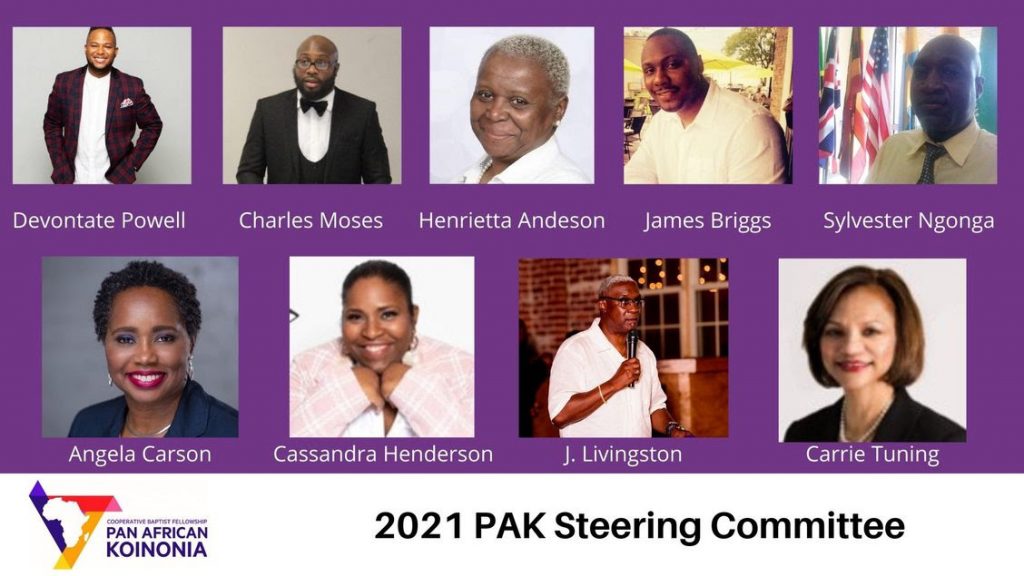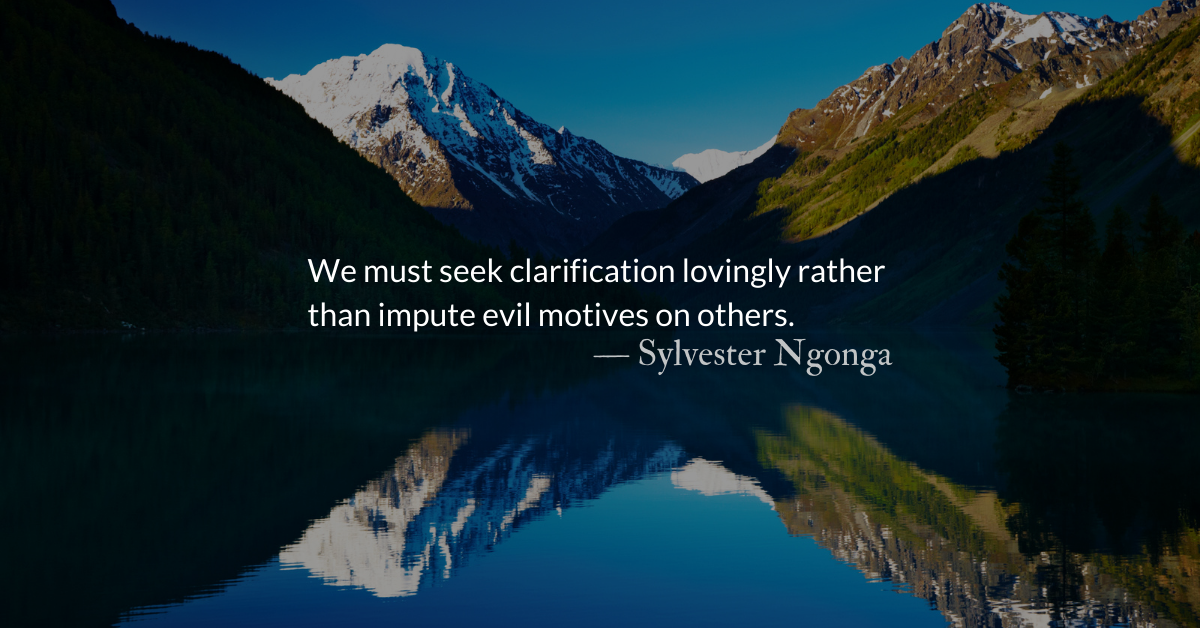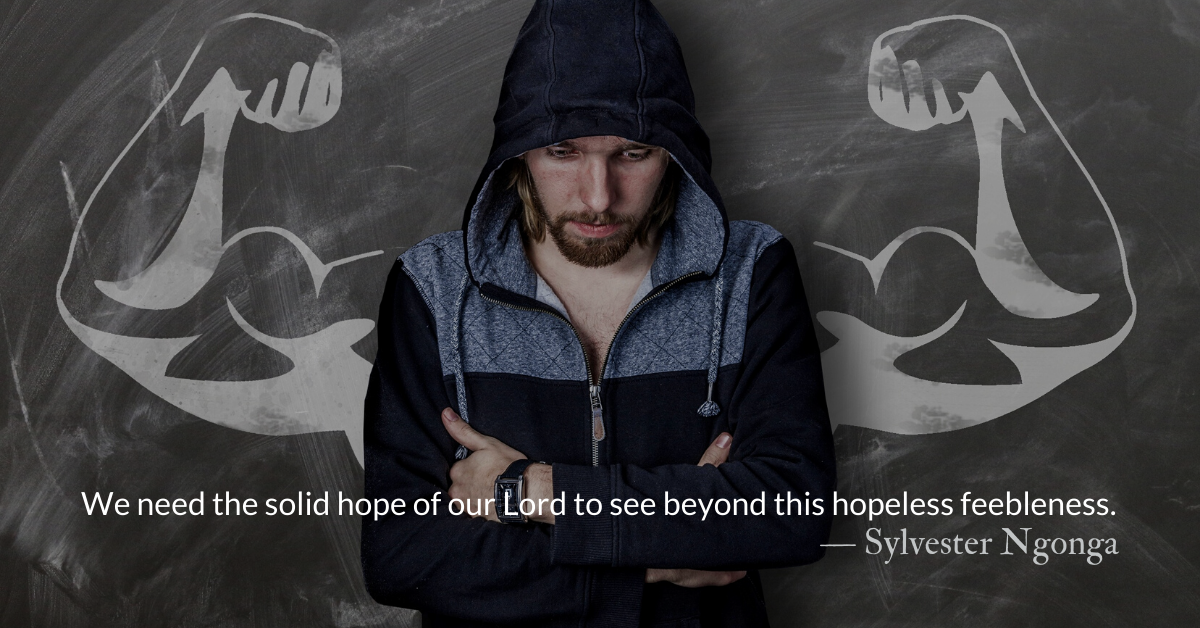

CBF Pan African Koinonia.
Steering Committee Member (2021-2023).
The Pan African Koinonia (formerly the African American Network) are members of Cooperative Baptist Fellowship from the African diaspora including African Americans, Caribbean, Africans, and more.
The purpose of Pan African Koinonia is to cultivate an increased presence of Black individuals and churches throughout the Cooperative Baptist Fellowship.
PAK does this by creating courageous spaces that:
- Inspire genuine Christian fellowship
- Encourage racial and cultural understanding, and
- Cultivate Beloved Community
For more information visit: cbf.net/pak fellowship@cbf.net


The Blog of the Long Term Economy
A contributing writer to this platform that promotes diversity, friendship, community, and inclusive prosperity.
To access the articles by Sylvester Ngonga click on the link below then choose an article to read: http://www.lteconomy.it/blog/user/sylvesterngonga/

Student Writers Month: JULY 15, 2021
This month, The Park Forum student writer is from Gardner – Webb University School of Divinity, Boiling Springs NC.

Resolving Misunderstanding
By Sylvester Ngonga.
Scripture Focus: Joshua 22:21-23
21 Then Reuben, Gad, and the half-tribe of Manasseh replied to the heads of the clans of Israel: 22 “The Mighty One, God, the Lord! The Mighty One, God, the Lord! He knows! And let Israel know! If this has been in rebellion or disobedience to the Lord, do not spare us this day. 23 If we have built our own altar to turn away from the Lord and to offer burnt offerings and grain offerings, or to sacrifice fellowship offerings on it, may the Lord himself call us to account.
This chapter’s plotline is captivating and full of suspense. In the backdrop of a concluded military victory, the tribes to the east of river Jordan built a memorial altar even though they knew of Moses’ command to only offer sacrifices at the altar at Shiloh (Leviticus 17.8-9). Fears of betrayal motivate the tribes to the west to attack but not before sending a high-level inquiry delegation to allow the eastern tribes to explain their actions. Will this delicate misunderstanding escalate to a full-blown civil war, or will it be resolved?
Feeling isolated, the eastern tribes intended the altar as a symbol of unity. Unfortunately, the western tribes misinterpreted it as disloyalty. Today, we may not be separated from our brethren by the river Jordan but we are separated by divisive political and religious ideologies which breed fears of betrayal. These fears propel us often to the precipice of civil wars and religious conflicts.
In our isolation, the ever-lurking impulse is to build culturally compliant monuments to express our faith. The divisive nature of competing scriptural interpretations fuels misunderstandings in our perception of God and each other. The eastern tribes, when confronted to explain themselves, appealed to God confidently about their action. Can we do so? Have we simply built memorials or are they altars to the gods of our man-made ideologies?
The gospel should bind us together. Jesus, the ultimate sacrifice, was offered up for us once and for all (2 Corinthians 5.21). In our reasonable service, all that is required is to offer ourselves as a living sacrifice, holy and acceptable to God (Romans 12.1). Sadly, many today want to hear from God without listening to him. We want to worship God in any way that pleases us rather than in unity, spirit, and truth (John 4.24).
This truth of God’s word should help us confront and respond to each other lovingly about misunderstandings regarding God’s holiness. Whenever there is a misunderstanding, our first appeal should be to God, not popular opinion. Understanding our accuser’s perspective helps to shape our reaction.
Both sides were assuming the worst of each other. The eastern tribes assumed that they would be excluded and the rest of Israel assumed that they were rebellious. We must seek clarification lovingly rather than impute evil motives on others. Our unity in diversity is a tapestry of beauty, and God is pleased when we dwell in harmony (Psalm 133.1)!
For more info about Park Forum’s yearly Student Writer program, see our website.
Student Writers Month: JUNE 3, 2020
This month, The Park Forum student writer is from Logsdon Seminary- Hardin Simmons University, Abilene Texas.

Feeble Hands, Knees, and Hearts
By Sylvester Ngonga.
Scripture Focus: Isaiah 35:3-4
Strengthen the feeble hands and make steady the knees that give way. Say to those with fearful hearts, “Be strong, do not fear; your God will come, he will come with vengeance, with divine retribution he will come to save you.
The preceding chapter, Isaiah 34, describes the judgments against the nations whereas this chapter anticipates the recovery of Jerusalem and the glad return of the exiles from deportation. In these two verses feebleness is conspicuous:
Feebleness of hands: inadequacy of strength, declined productivity
Feebleness of knees: inefficiency of movement, weakened mobility
Feebleness of hearts: inconstancy of hope, heightened anxiety
These lamentations of feebleness characterized the general experiences amongst the people (Lamentations 1) following Jerusalem’s destruction and subsequent deportation into exile (Jeremiah 27.20).
Not unlike their experience, the Covid-19 pandemic has brought the world to its knees. Many people have died. Curtailed physical interactions have led to millions of job losses and closure of learning institutions, and even shutting of church doors. In these surreal conditions, there are trepidations and desperate lamentations of shakiness experienced all over the world in the feebleness of hands, knees, and hearts.
The world is desperate for a silver lining beyond this pandemic but Christ gives us something much better: An assurance that is more than a bright outlook, an everlasting future without feebleness of hands, knees, and hearts.
The prophet Isaiah looked beyond the enormous trepidations of people in misery following God’s judgment and saw the return and restoration of a nation. It would no longer be time for lamenting the feebleness of hands, knees and, hearts but strengthening, firming, and cheering up!
In the prevailing global tension, we need the solid hope of our Lord to see beyond this hopeless feebleness. The focus should be beyond simply getting past our present challenges. The anticipation of the hope of glory is not vanity but assured confidence that God will come and save in his own time. Because Jesus lives, we can face the future with confidence and hope (Romans 8.11).
The writer of Hebrews (Hebrews 12:12) references this text of Isaiah in encouraging believers to strengthen their feeble arms and weak knees and to gracefully endure hardships.
For more info about Park Forum’s yearly Student Writer program, see our website.